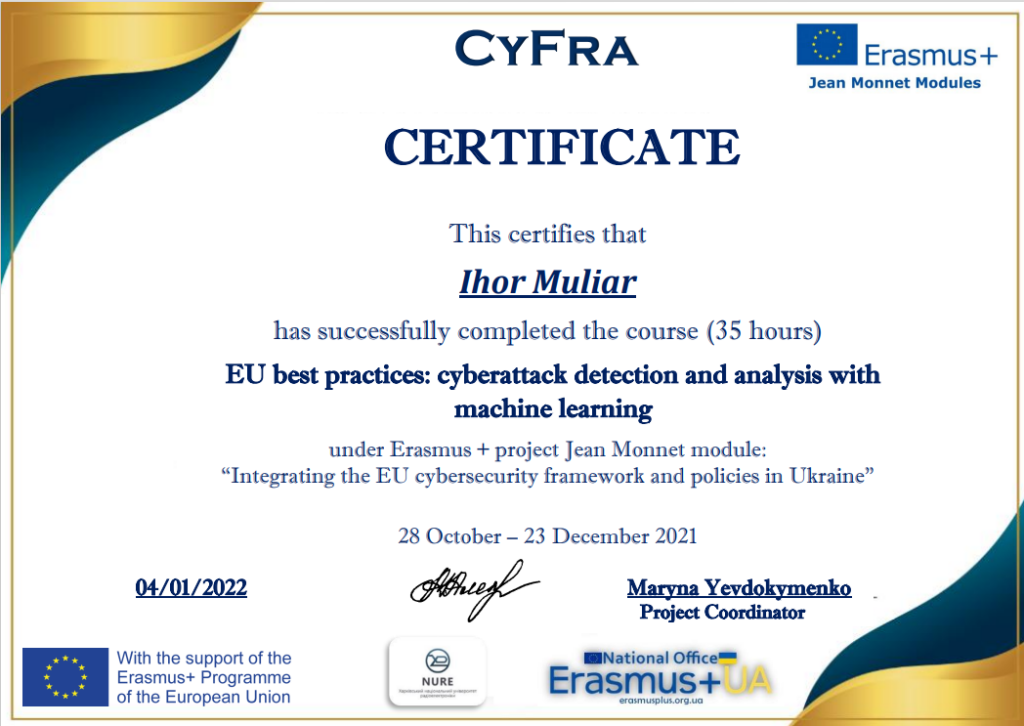During October-December 2021, teachers and students of the Department of Cybersecurity completed the first part of the professional online training course “EU Best Practices: Detecting and Analyzing Cyberattacks Using Machine Learning” within the framework of the Erasmus+ Jean Monnet Module “Integration of EU Cybersecurity Frameworks and Policies in Ukraine”.
Erasmus+ is a program of international cooperation between the European Union and other countries in the field of education, which aims to support educational, professional, and personal development, as well as the exchange of best practices among students and professional development of teachers.
The course “EU Best Practices: Detecting and Analyzing Cyberattacks Using Machine Learning” highlights the best European practices in the field of cybersecurity:
- overview of tactics and techniques of cyber attacks;
- tactics and methods for detecting cyberattacks;
- static and dynamic malware analysis;
- reverse engineering;
- cyberattack tactics and techniques used by ransomware.
The technologies of teaching the course “EU Best Practices: Detecting and Analyzing Cyberattacks Using Machine Learning” are planned to be taken into account to improve the educational components of the specialty “Cybersecurity” at KhNU.
The course participants are sincerely grateful to Oleksandr Adamov, head of the NioGuard Security Lab with 15 years of experience in analyzing cyberattacks, for the quality of the course.
Impressions of Volodymyr Hloviuk, a student of the CS-19-1 group:
“Before starting my studies, I had some concerns about the knowledge I needed to successfully complete this course, but after the first lecture, I realized that I had more than the necessary knowledge base at the university to solve the tasks covered by this project. After all, I did receive a certificate.
Thanks to the instructor, Oleksandr, all the information was very easy to understand and I had no questions about the topics covered. However, closer to the end of the first part of the course, I realized that I needed additional skills and more in-depth knowledge in certain areas, such as cryptography, Python programming, software analysis, and machine learning, for further study. But I think this will not be a problem, because during the break between parts of the course I will be able to acquire the necessary skills at the university and with the help of recommendations provided by the course instructor. So I will prepare and look forward to continuing my studies.”

